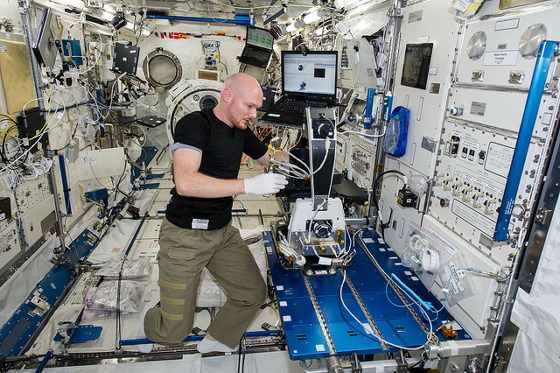What is the difficulty of 'surgical operation during space navigation' approaching human beings aiming for extraterrestrial planets?

At least nine months of space navigation is required to reach Mars revolving around the outer orbit of the Earth. If the occupant gets injured or sick during a long journey, it is sufficient to consider that it is necessary to apply a surgical procedure just like the Earth, but for treatment in an environment where the gravity is very small It is pointed out that there is a possibility that big difficulties will be fought.
Surgery in space - Panesar - - BJS - Wiley Online Library
https://onlinelibrary.wiley.com/doi/full/10.1002/bjs.10908
Future Astronauts Must Perform Surgery in Space - and It Will Be Gross
https://www.livescience.com/62911-space-surgery-problems.html
A paper published on June 19, 2018, whose name is also "Surgery in space", a research team of Pittsburgh University in the United States and a researcher of the King's College Hospital in the UK is in space We are studying the situation of surgical operation in Japan. In the paper, the research team stated that "future astronauts and migrants will inevitably face a wide range of common pathological problems in long-term space navigation" "long-time zero gravity state And cosmic radiation, trauma and other situations will lead to new pathology. "
On the ground where objects are drawn towards the ground by the gravitational force of the earth, body fluids such as blood and internal organs and the like which come out from the body of the patient are all affected by attraction. Flowing blood falls on the floor or desk, and even when performing laparotomy surgery, the organs such as the stomach and intestines are basically located in appropriate places. However, it is inevitable that in a weightless state where gravity is very small, a situation completely different from that on the earth is born.

By NASA Johnson
Blood and body fluid that jumped out of the body when traumatized, become spheres in space due to surface tension, and continue to drift in the air until it touches some kind of object. Also, in case of injuring a big injury and the organs in the body get out of the body or in case of treating internal organs by laparotomy surgery, unless measures such as fixing organs are taken in some way, new It is also thought that generation of trauma and unexpected damage by surgical instruments are added.
A facility dedicated to treatment called 'Trauma Pod' (trauma compartment) is considered to confront this problem. It is aimed at minimizing the splashing of body fluids such as blood and pathogens discharged outside the body by creating an environment isolated from the outside.

It is also pointed out that difficulties in applying treatment with limited supplies and personnel in a space away from the earth. When carrying out long-term space navigation, considering various cases in advance, the necessary materials are loaded on the spacecraft, and a crew member with appropriate knowledge and experience boards. However, it is virtually impossible to "correspond 100% to all possible cases", and in such a case it is also possible to send instructions from the Earth remotely or operate the equipment to treat it Yes.
The big problem here is the distance problem. The distance between the Earth and Mars is 23,000 km at the furthest distance, and it is about 70 million km even when it is the closest. With this distance, it takes at least four minutes for the radio waves emitted from the earth to reach the spacecraft, so it is impossible to take any action in real time via communication.
As you can see, there are still a lot of issues to be cleared in interplanetary navigation, where humanity is unknown. Although it is expected that various solutions will be found in the future research, it is still necessary to have much research and time to reach the Mars, aiming further planets and planets outside the solar system That's right.

By mr. hasgaha
Related Posts:







